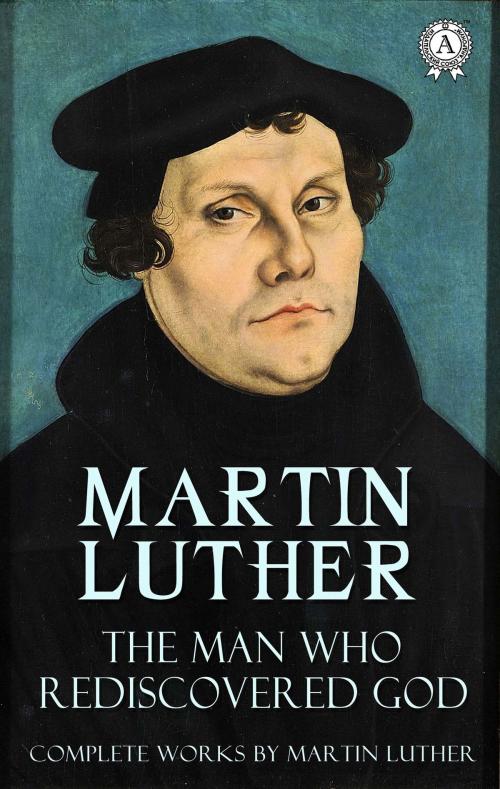The Man Who Rediscovered God (Complete Works by Martin Luther)
Fiction & Literature, Literary Theory & Criticism, Books & Reading| Author: | Martin Luther | ISBN: | 9783966616218 |
| Publisher: | Strelbytskyy Multimedia Publishing | Publication: | April 23, 2019 |
| Imprint: | Language: | English |
| Author: | Martin Luther |
| ISBN: | 9783966616218 |
| Publisher: | Strelbytskyy Multimedia Publishing |
| Publication: | April 23, 2019 |
| Imprint: | |
| Language: | English |
Theological Works, Sermons & Hymns: The Ninety-five Theses, The Bondage of the Will, A Treatise on Christian Liberty, Prayers, Hymns, Letters and many more. Martin Luthers theology is based on the Bible and not on dogmas. Referring to Pauls Epistle to the Romans, he claims that salvation is given through Gods grace and not through deeds. It was adopted by Lutheran Churches, and also by the other Reformed Churches, in principle.Martin Luther was German theologian, professor, pastor, and church reformer. Luther began the Protestant Reformation with the publication of his Ninety-Five Theses on October 31, 1517. In this publication, he attacked the Churchs sale of indulgences. He advocated a theology that rested on Gods gracious activity in Jesus Christ, rather than in human works. Nearly all Protestants trace their history back to Luther in one way or another. Luthers relationship to philosophy is complex and should not be judged only by his famous statement that reason is the devils whore.
Theological Works, Sermons & Hymns: The Ninety-five Theses, The Bondage of the Will, A Treatise on Christian Liberty, Prayers, Hymns, Letters and many more. Martin Luthers theology is based on the Bible and not on dogmas. Referring to Pauls Epistle to the Romans, he claims that salvation is given through Gods grace and not through deeds. It was adopted by Lutheran Churches, and also by the other Reformed Churches, in principle.Martin Luther was German theologian, professor, pastor, and church reformer. Luther began the Protestant Reformation with the publication of his Ninety-Five Theses on October 31, 1517. In this publication, he attacked the Churchs sale of indulgences. He advocated a theology that rested on Gods gracious activity in Jesus Christ, rather than in human works. Nearly all Protestants trace their history back to Luther in one way or another. Luthers relationship to philosophy is complex and should not be judged only by his famous statement that reason is the devils whore.















